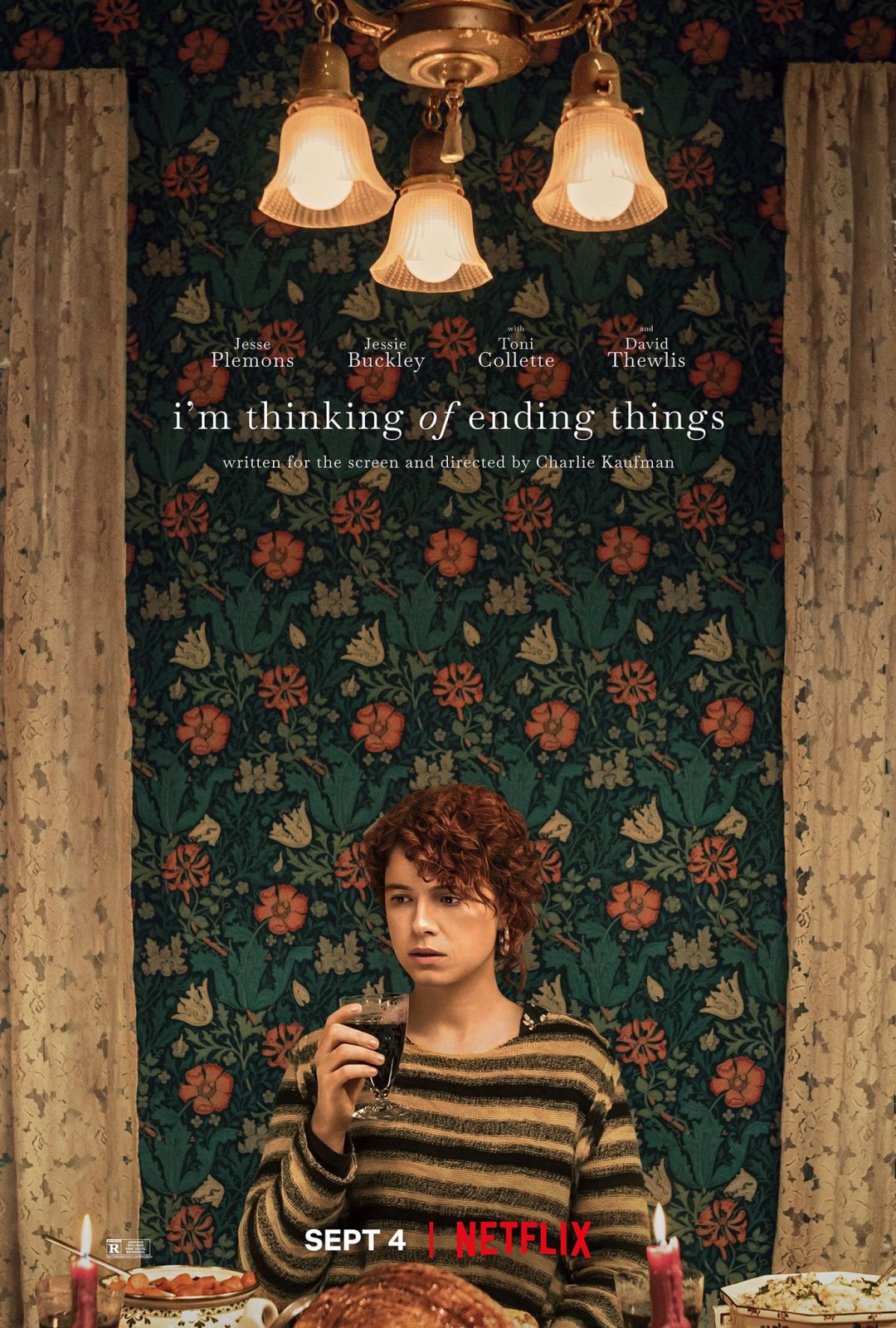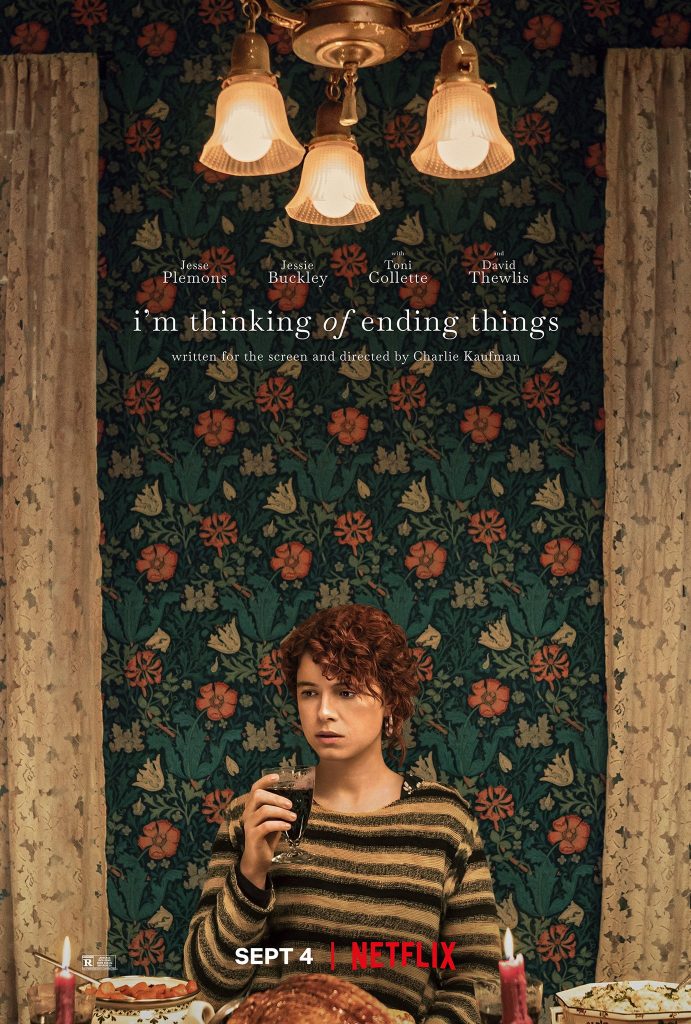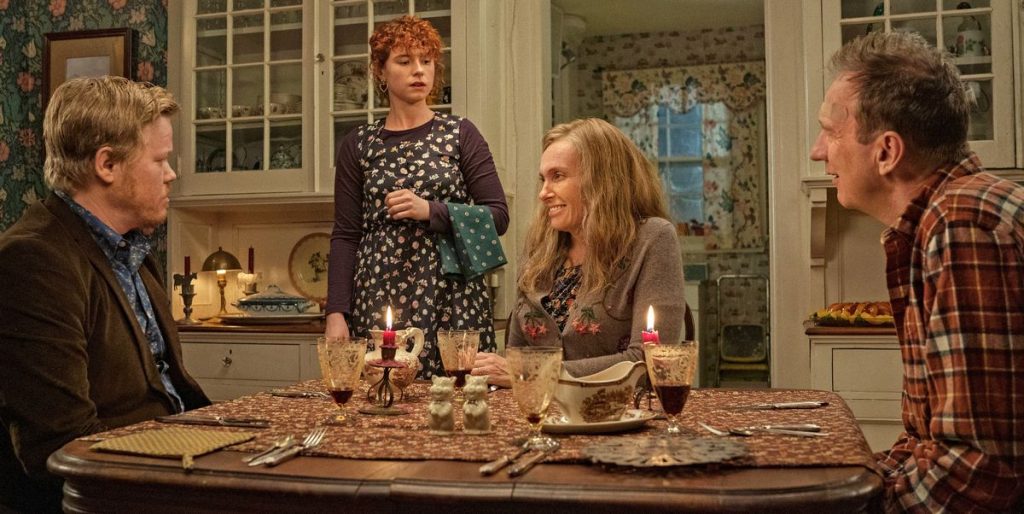
Movie Review: I’m Thinking Of Ending Things
September 18, 2020This article was originally published in the Kelowna Daily Courier. The original version can be viewed here
Charlie Kaufman’s latest film for Netflix is a stunning piece of abstract cinema

With scripts like Being John Malkovich, Adaptation, and Eternal Sunshine of the Spotless Mind, alongside directorial efforts Synecdoche, New York, and Anomalisa, Charlie Kaufman has established himself as one of the most original creatives in Hollywood. His movies are tightly-written, delightfully absurd adventures that manage to be both deeply disturbing and extremely entertaining. I’m Thinking of Ending Things, Kaufman’s latest Netflix Original, is a highly experimental film for the director, drawing heavily from the likes of David Lynch, and leaning more toward psychological horror than his typical dramedy style. However, far from abandoning what he’s best known for, the tonal shift in Ending Things allows Kaufman to incorporate his signature wit and absurdism in entirely new ways, creating a film that’s unlike anything else released this year.
On the surface, Ending Things is the story of a couple on a road trip. The young woman (Jessie Buckley) is thinking of ending things with her boyfriend Jake (Jesse Plemons), but can’t bring herself to. Instead, Jake has invited her to meet his parents for dinner at their farm.
Ending Things foregoes a typical narrative structure in favour of a dreamlike, stream-of-consciousness form of storytelling. Transitions between scenes are often abrupt, characters’ backstories are fluid or nonexistent, and time and continuity are treated more as annoyances than rules. For example, anytime the camera shows the couple in their car, they’ll clearly be driving on a road, but anytime the couple stops the car, there’s no road in sight. More examples of this movie’s approach to time happen in the parents’ house, during which the young woman has several interactions with both of Jake’s parents at various stages of their lives.

The movie’s loose grasp of its own reality is most evident within the character of the young woman. Almost nothing about Buckley’s character remains consistent throughout the film. Early on, she is introduced as a painter, but shortly thereafter said to be in college for a degree in quantum physics, only to later be referred to as a waitress. Similarly, the story of how she and Jake met adapts to fit whichever job she’s currently supposed to have. Other details about the young woman are unclear as well, right down to her name: while she’s credited as “young woman” in subtitles and the credits, she is introduced by Jake at different points in the film as Lucy, Lucia, Louisa, Ames, and Yvonne. Even her appearance is brought into question at one point, as Buckley briefly swaps places with Colby Minifie after her character is referred to as Yvonne.
Ending Things is more a set of loosely connected scenes than a straightforward story, so Kaufman goes all out to make those scenes truly mesmerising. During dinner with the parents, an abrupt cutaway shows a scene from an unrelated (and non-existent) movie by Robert Zemeckis about a woman – Minifie’s Yvonne – working as a waitress so she can become a vegan animal rights lawyer. One truly outstanding sequence is an interpretative dance illustrating what could be a possible future for Jake and the young woman, though it ends in tragedy. The most horror-like scene of the movie features the couple stopping at a Tulsey Town (this movie’s version of Dairy Queen) to get ice cream (in the middle of a blizzard), while one of the attendants tries to warn the young woman of some abstract danger.
Ending Things is a deeply cerebral movie that functions more as a window into the minds of its characters than a reflection of some reality. While Buckley’s young woman is an unreliable narrator, Kaufman goes further, taking the role of an unreliable director. Abstract cinema is remarkably hard to pull off, but Kaufman not only executes it well, but delivers a unique, emotionally-poignant, beautiful film at the same time.
8.5/10
